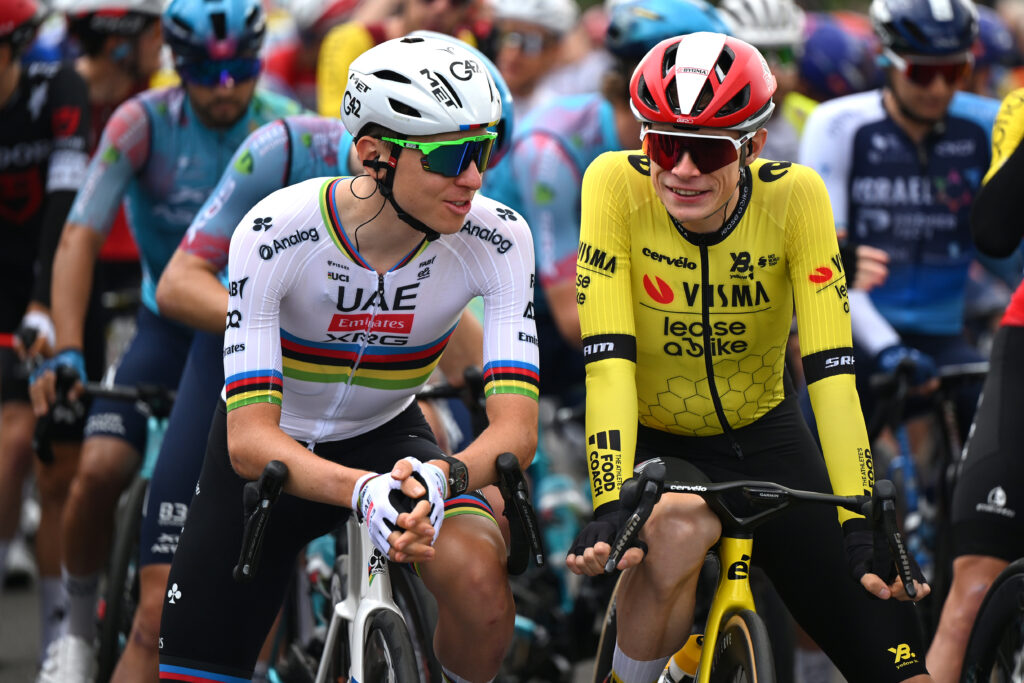
‘We have to slow down the evolution of cycling’ – Marc Madiot wants to ban race radios, power metres and bike computers to improve race safety
Title: ‘We Must Slow Down Cycling’s Evolution’ – Marc Madiot Advocates for Race Radio, Power Metres, and Bike Computer Ban to Enhance Race Safety
Groupama-FDJ team manager, Marc Madiot, has called for a ban on race radios, power metres, and bike computers, saying that they are making cycling races less safe. He suggests that riders are being ‘remotely controlled’ from the team car, a situation that he believes is undermining the spontaneity and unpredictability that makes the sport thrilling and exciting.
Madiot, a two-time winner of the Paris-Roubaix, has long been an influential voice in the world of professional cycling, and his latest comments are likely to spark a fresh debate about the role of technology in the sport.
Speaking to French newspaper L’Équipe, Madiot stated, “We have to slow down the evolution of cycling”. He argued that the sport is becoming more about numbers and data, rather than the rider’s intuition and experience. The Groupama-FDJ boss asserts that the reliance on technology is making races predictable and boring, as well as potentially dangerous, as cyclists focus more on their devices than the road.
The use of race radios, power metres, and bike computers has dramatically increased over the past decade, bringing a more strategic and scientific approach to the sport. These devices allow real-time communication between riders and their teams, enabling strategizing based on live data like heart rate, power output, and distance remaining. However, detractors argue that this makes races more formulaic and detracts from individual rider performance.
Madiot’s concerns are particularly focused on the safety implications. He cited incidents where riders, focused on their devices, have collided with each other or crashed. “The rider must not become a robot remotely controlled from the team car,” Madiot asserted. He believes that by banning these devices, races would become safer and more dynamic, with results determined more by rider ability and intuition than technology.
However, not everyone in the cycling world agrees with Madiot’s perspective. Many argue that technology has simply brought cycling into the modern age, making it more accessible and appealing to a wider audience. They contend that devices like race radios improve rider safety by allowing for immediate communication about potential hazards, like upcoming turns or obstacles on the road.
Defending the use of technology in cycling, Team Ineos manager Sir Dave Brailsford said, “We can’t hold back the tide of progress. The use of data and technology enhances the viewer experience and allows us to better understand and appreciate the incredible performances of our riders.”
However, Madiot is not alone in his concerns. The UCI, cycling’s governing body, has shown interest in the issue and is reportedly considering a potential ban on race radios in particular, citing similar reasons to Madiot.
While the debate continues, Madiot’s comments have certainly reignited the conversation about the role of technology in professional cycling. It remains to be seen whether his call to “slow down the evolution of cycling” will lead to significant changes in the sport, or whether the onward march of technology will continue unabated.
The degree to which technology should be integrated into sports, not just cycling, is a global debate. As it stands, the balance between safety and evolution, tradition and innovation, intuition and data, is a delicate one. It is clear that whatever the outcome of this debate, the impact on the future of professional cycling will be significant.
